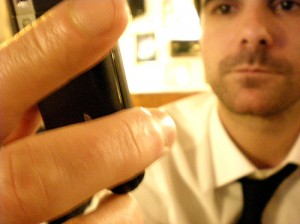One of the main differences between being at Law School and working in a law firm is money. Not just the money that you earn for yourself but the money that you earn for the firm. One of the most difficult adjustments you will have to make is assessing how well you are working. It will no longer be calculated by the number of hours spent studying your law books but by the number of hours spent earning hard cash for the firm.
The external valuation of your work at Law School (as at university) is done in terms of percentage marks and final grades, where high numbers are good, low numbers are bad and nobody expects you to get 100% — well, not too often anyway. Law firms are different. The result that is aimed for is 100% accuracy — anything less could result in your client making the wrong decisions and your firm being sued.

Law firms are businesses
Law firms don’t make chocolate bars or designer suits or even fill teeth, all of which are visible end-products. Their end-products are mainly legal advice, representation and negotiation.
At one level trainees are simply part of the tool kit used to provide these law firm products, so your firms needs to know what you are doing. Older lawyers may reminisce about the days when partners used to weigh files in their hands before plucking a figure out of the air which represented the amount of time spent on a matter and its “complexity” although it could be simply an estimate of what the client would bear. Those arcane practices have long since disappeared, along with would be solicitors paying substantial amounts of money to their principals and receiving little or no salary until they qualify.
Accountability
Now that trainees are paid while training, firms expect to be able to charge for what they do. During their initial induction trainees should be introduced to their firm’s time recording method. Whether this is (unusually) a simple paper-based system or a sophisticated electronic system which requires logging on every time you embark on a piece of work, make sure that you familiarise yourself with the firm’s billing procedure and be scrupulous in its application, because…..
Accurate time-recording enables a partner to:
– Ascertain how much time has been spent on a particular matter,
– Therefore work out how large the client’s bill should be, and most important for you,
– See how many hours you are working and deduce how hard you are working.
You could say that the first two items enable a firm to make money and the third item enables it to work out whether you are worth what you are being paid.
Some of the work that you do, such as client development or marketing will not be chargeable to any specific client, but you should still check if and how you can record it. If you are writing journal articles or preparing practice notes during a slack period or you have been asked by a partner to attend a client event, record the time spent if at all possible. It’s often those extras that distinguish the “high-flyer” or “committed trainee” from the “grunt” lawyer. But only if the firm’s decision makers know what you have been contributing.

How long is a piece of string?
Each time that you carry out some billable work, record it against a client or matter number. If you do something for the first time, keep a personal note of the time taken for future reference. This will help you to manage your time more effectively and also to manage the expectations of your supervisor and in turn the client’s expectations of him. If you allow your supervisor to tell a client that a piece of work will take 30 minutes when you know it will take several hours, your supervisor will be disappointed and so will the client.
Don’t be tempted to “inflate” the time that you spend on something. Your supervisor may have a fair idea of how long it should take, and will not be amused if you put down 2 hours for something when it should have taken 15 minutes because you have been gossiping in the firm’s library.
Don’t be tempted to under-record if something has genuinely taken you a long time, because you will then be in the position of having to explain why you are not putting in the hours that the firm is paying you for. Or worse still, there may well be an expectation that you can do the same amount of work in a very short period of time in the future.
Don’t be tempted to put down less time than you have taken because you think that the client should not have to pay for your “learning time”. It is up to your supervisor to decide whether to write off your time when it comes to billing the client. Even if it takes you longer than someone more experienced, it might still work out cheaper for the client in the long run, because your charge out rate will be much less.
Don’t be tempted to think that accurate billing is unimportant just because the partner has agreed a fixed fee for the work with the client. The partner will not be able to assess whether the fixed fee was a good deal for the firm, unless he knows how long everyone involved spent on the matter.
Record your work
When you have finished a piece of work, record:
– The client and the specific matter to which your work is relevant
– The amount of time it took
– The detail of what you have done…Writing “X plc – 30 minutes” is simply insufficient.
If your work will require more than one session, record the time spent as you go along. It is dangerous to think “I can record it to-morrow/at the end of the week/when I finish it.” Even leaving time recording to the next day is likely to be an unnecessary test of your recall and could lead to inaccurate recording of what you actually did and how much time you spent on it.
At some point someone, and it may well be you, will have to prepare a bill for the client. Bills are not sent out saying simply, “To legal services — £37,443.” Clients need to be reminded what you did for them, so the request for payment is accompanied by what is called a Bill Narrative. This is a summary of the work that your firm has carried out for the client on this particular matter. The detail that will be included will vary not only according to the amount of time spent on the matter, but also on the nature of the client, how frequently you do the same sort of transaction for a particular client and on how sophisticated the client is.
The conveyancing work that you do for a first-time buyer may paradoxically require a longer narrative than the compliance work that you do for an offshore investment fund for which you do the same sort of thing twenty times a year. But whoever the client is it will be much easier to write the narrative if you have all the detail of what has been done to hand. Even if you are not the one to write the narrative, you will be able to give the relevant information and then get back to “proper work” more quickly if your time recording has been done properly.

Little and large
Time is recorded in “units” typically of 6 (because that makes 10 per hour) or 10 minutes duration. If possible allocate even the smallest phone call to a matter number. Even a 5 minute phone call will have distracted you from your work and you will need a few minutes “re-settling” time to get back to what you were doing before. If you don’t record the call, you’ve “lost” a unit. If you answer just a few unrecorded calls in a day, you have effectively put yourself in the position of not being able to account for up to one hour of your time. Again it is up to the account partner to write off your time, not you.
Work does not always stop after you leave the office. If you check over a draft agreement or even deal with client related emails on your mobile device, remember that you are doing billable work that needs to be recorded.
In some seats it is easier to record time than in others. Tax lawyers get lots of short queries from other departments, often at the last minute on larger transactions. Junior corporate lawyers may spend blocks of several hours at a time checking documents or accompanying their supervisors to completion meetings.
It seems obvious, but billable hours can end up in bills only if you record your time.
Put yourself in the client’s shoes
Nobody likes paying bills. Receiving a credit card bill isn’t pleasant; it’s often a cold reminder that your salary is not infinitely elastic. But taking a look at the detail may remind you of a special evening out or the deposit on your summer holiday or the relief after your dentist has given you antibiotics for an abscess.
Clients feel the same — with one significant difference. There is very often no pleasure factor attached to their bills. At least a visit to the dentist may alleviate pain, but in some situations a visit to a lawyer may cause a client even more pain, especially when they are made to face up to their true capital gains tax position or the likelihood that the court will not award them custody of their children on divorce or the amount of due diligence that will be necessary on the purchase of a business. Note that almost a fifth of the complaints received by the Legal Ombudsman in the first half year of its operation (the six months to March 2011) related to costs which clients felt were “excessive” or costs information which was “deficient”
This is why you should….
Bill fully, bill fast and bill often
Make sure that the client understands all that you did for him, so that the bill seems fair for the amount of work done.
Bill the client while what you did for him is fresh in his mind. If you wait for a year, he will not only have forgotten, but he may well feel that he can wait for another year to pay your firm.
In an ongoing matter, don’t let the fees mount up without sending out a bill. Not only does this injure the firm’s cash-flow, but the shock to the client of receiving a bill for 12-18 months work may cancel out any feeling of gratitude for a good job well done.
Some partners are notorious for forgetting this mantra. A large amount of WIP (work in progress) is not necessarily an asset for a firm. Cash in the bank is. Even as a trainee you can help your firm’s profitability by offering to help with drawing up bill narratives when a piece of work is completed and even doing a draft letter to send out with the bill. But remember to help yourself by accurate time-recording.
Professor Penny Cooper of The City Law School and Elizabeth Cruickshank are the authors of ‘All you need to know about being a Trainee Solicitor’ (Longtail, 2008) and together with Boma Ozobia of “The Survival Manual for New Wigs” (Odade 2010).
